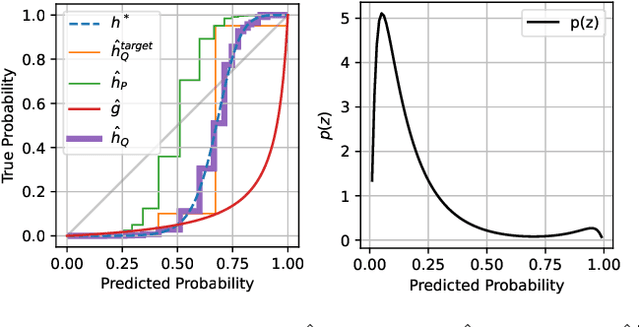Minimum-Risk Recalibration of Classifiers
Paper and Code
May 18, 2023



Recalibrating probabilistic classifiers is vital for enhancing the reliability and accuracy of predictive models. Despite the development of numerous recalibration algorithms, there is still a lack of a comprehensive theory that integrates calibration and sharpness (which is essential for maintaining predictive power). In this paper, we introduce the concept of minimum-risk recalibration within the framework of mean-squared-error (MSE) decomposition, offering a principled approach for evaluating and recalibrating probabilistic classifiers. Using this framework, we analyze the uniform-mass binning (UMB) recalibration method and establish a finite-sample risk upper bound of order $\tilde{O}(B/n + 1/B^2)$ where $B$ is the number of bins and $n$ is the sample size. By balancing calibration and sharpness, we further determine that the optimal number of bins for UMB scales with $n^{1/3}$, resulting in a risk bound of approximately $O(n^{-2/3})$. Additionally, we tackle the challenge of label shift by proposing a two-stage approach that adjusts the recalibration function using limited labeled data from the target domain. Our results show that transferring a calibrated classifier requires significantly fewer target samples compared to recalibrating from scratch. We validate our theoretical findings through numerical simulations, which confirm the tightness of the proposed bounds, the optimal number of bins, and the effectiveness of label shift adaptation.
 Add to Chrome
Add to Chrome Add to Firefox
Add to Firefox Add to Edge
Add to Edge